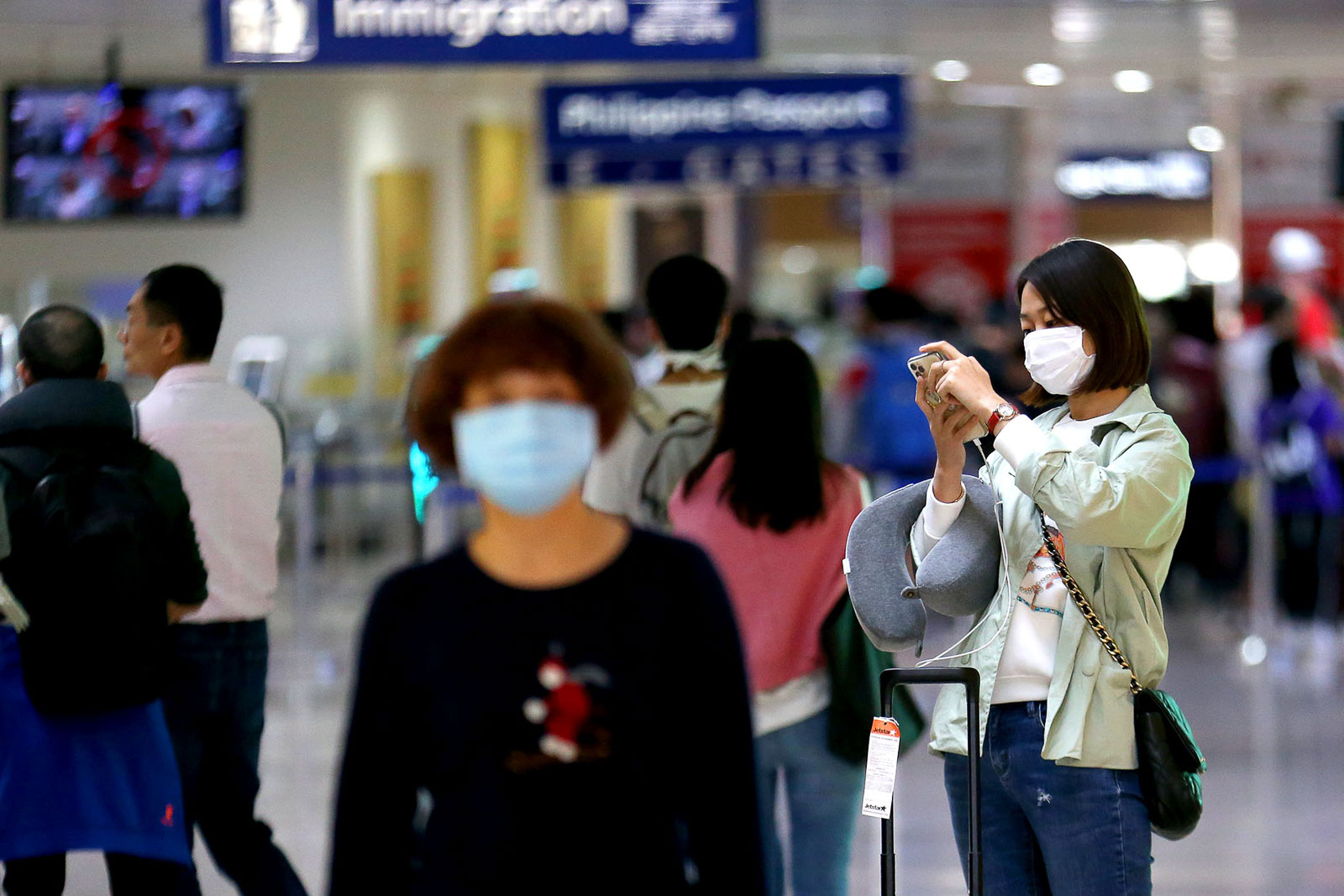
MANILA, Philippines – Since the outbreak of the 2019 novel coronavirus or nCoV, false information about the deadly disease have also spread like a virus on a global scale. (READ: ‘Novel coronavirus’ or 2019 nCoV: What we know so far)
Several fact-checking organizations that are signatory to Poynter's International Fact Checking Network (IFCN) collaborated to combat the disinformation on 2019-nCoV. (READ: Fact checkers worldwide team up to debunk false info about 2019-nCoV)
The Philippines only confirmed on Thursday, January 30, its first case of 2019-nCoV.
Rappler consolidated the list of coronavirus-related claims that we fact-checked. We also added the 3 biggest trends of misinformation from Poynter’s article published on Tuesday, January 28.
Here are the false claims:
1. Claim: 'SARS' case reported in clinic at Shangri-La Plaza
A chain message circulated on Tuesday, January 14, warning people to avoid going to Shangri-La Plaza, a mall in Mandaluyong City, because of a supposed case of Severe Acute Respiratory Syndrome (SARS) reported in one of the mall's medical clinics. However, the Department of Health (DOH) and Healthway Medical both issued advisories denying the claim in the chain message.
2. Claim: Confirmed cases' of coronavirus at PBCom Tower in Makati
“Confirmed cases” of the novel coronavirus or 2019-nCoV were recorded at the Philippine Bank of Communications (PBCom) Tower in Makati City, according to a message that circulated Friday, January 24. Speaking to reporters on January 24, Health Undersecretary Eric Domingo maintained that there was still no confirmed case of the 2019-nCov in the Philippines on that day. The management of PBCom Tower also said there was “no truth” to the information.
3. Claim: 'Patient tested positive' for 2019-nCoV in Makati Medical Center
A message saying a “patient tested positive” for the 2019 novel coronavirus (nCoV) at the Makati Medical Center circulated on messaging apps and social media platforms on Monday, January 27. The fact was, there was still no confirmed case of the 2019-nCoV in the Philippines as of January 28, according to the Department of Health (DOH).
4. Claim: Chinese patient in Alabang clinic, hospital tested ‘positive’ for coronavirus
A screenshot of a text message that spread on Facebook claimed that there is a Chinese patient at the Hi-Precision Diagnostics clinic in Alabang who was tested positive for the novel coronavirus or 2019-nCoV. In a press briefing on Tuesday, January 28, the Department of Health (DOH) announced that there was still no confirmed case of 2019-nCoV in the country. The patient at Asian Hospital and Medical Center in Alabang, Muntinlupa City is among the 24 persons under investigation (PUIs) for the possible 2019-nCoV infection.
5. Claim: Novel coronavirus a 'type of rabies'
A Facebook post claimed that the 2019 novel coronavirus (nCoV) is a "type of rabies" that can be contracted by eating bats. In a press briefing on Tuesday, January 28, Health Secretary Francisco Duque III clarified that the 2019-nCoV belongs to the Coronaviridae family of viruses. Meanwhile, rabies is from Rhabdoviridae.
6. Claim: 2019-nCoV is created in laboratory; new vaccines are invented
In the United States, social media posts falsely claimed that the 2019-nCoV was created in the laboratory and was patented to boost sales on the vaccine. The vaccine for the Wuhan virus was already invented and supposedly available in the market. But the truth is, there was no vaccine created yet at the time when the claim spread.
According to the fact-checks done by US fact-checking organizations such as Lead Stories, Fact-Check.org and PolitiFact, the existing patent claimed by social media posts is related to the different viruses in the coronavirus family such as SARS. There is no current patent for the new virus. The same claim was also debunked by a group of fact-checkers in Brazil and Canada.
7. Claim: Drugs to treat patient with 2019-nCoV
Since Taiwan is geographically near China, many false procedures were spread that supposedly could cure or prevent the 2019-nCoV. Different versions of the claim said salty water and acetic acid could prevent one from getting the Wuhan virus. Others said substances like steroids and ethanol could kill it.
The Taiwan Fact-Checking Center said 2019-nCoV does not have approve vaccines and drugs to treat the disease during the time when the claim circulated.
8. Claim: 2019-nCoV comes from bat soup, laboratories
False claims about the origin of the 2019-nCoV surfaced on social media and news cycles in countries like Brazil and the United Kingdom. Supposedly, the virus is linked to eating bat soup. However, there was no proof that supports the claim. It is still not clear which animals may have transmitted the virus to humans, according to Aos Fatos, a fact-checking unit in Brazil.
Some fact-checkers also debunked the conspiracies that 2019-nCoV originated from laboratories in China. Italy-based fact-checking unit Pagella Politica found "no evidence that the coronavirus 2019-nCoV was born in a China laboratory.” - Rappler.com